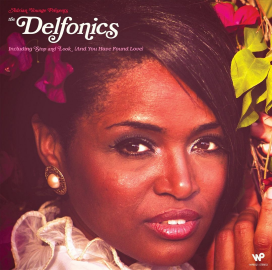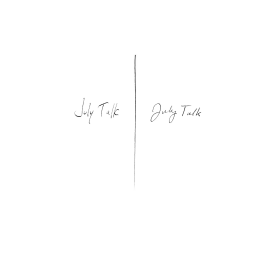The Delfonics
Adrian Younge Presents The Delfonics
Unless you were either born before 1974 or are a Quentin Tarantino soundtrack aficionado (See Jackie Brown), you’ve probably never heard of the Delfonics. The legendary Philadelphia soul group known for classics like “(La-La) Means I Love You” and “Didn’t I (Blow Your Mind This Time),” have had their most recent records demoted to the nearest clearance bins alongside other failed comeback records. However, the Delfonics look to change all that on their newest release, which finds the veteran group taken under the wing of soul music revivalist and composer Adrian Younge, who co-wrote all 13 songs with the Delfonics’ lead man William Hart. His gritty compositional skills and musical supervision help the Delfonics stay true to their trademark sound, all the while fusing it with Younge’s hip-hop informed sensibility. These sparse arrangements allow each song the proper room to breathe, and this bare bones style is most striking on the evocative opening track “Stop And Look (And You Have Found Love).” In a pop music culture where automation and electronics are becoming a staple, Younge brings a welcomed warmth and soft backbeats that should satisfy both soul and hip-hop fans alike.
July Talk
July Talk
The first track, “The Garden” begins with Peter Dreiman’s deep gravelly voice and a heavy rock beat. It’s catchy – but not what draws you in. It’s when Leah Fay starts singing: “Keep yer head above the water / And breath before / the ice of the lake / I ain’t gonna let him / twist my wrist / I ain’t gonna let him / kiss these lips.” Her voice is clean and light against the raw hoarse rock-grovels of Dreiman’s vocals. And it’s this strange juxtaposition of raw emotion and dainty bubble-gum voice that keeps you listening to the whole self-titled album, July Talk. The Toronto band channels southern sound, stomping rock and soul. The lyrics move from dysfunctional relationships (which works awesomely with Dreiman’s heavy emotion and Fay’s light-pop voice), romance and the gritty small towns of the South. Dreiman’s unique vocals don’t stop the diversity of the tracks as it might have: “Having you around” starts easy and soft without the pounding drums, and surprisingly, Dreiman’s hoarse voice smooths out adequately – enough to not sound ridiculous in a Nickleback-esque way. It’s a strong combination for vocals that makes for a unique sound for July Talk to move forward with.
Marnie Stern
The Chronicles of Marnia
Marnie Stern breaks open her newest album with “Year of the Glad,” racing guitars and interspersed statements of “new friends and old dreams / and everything’s starting now,” the seriousness of seriously good fretwork scored instead to positive spins on calamity next to exuberant, nonsensical shouts like non-standard punctuation. There’s elements of post-punk in the way Stern slices up lyrics into word-at-a-time double-back staccato and elongated past-range vocalizations as guitars drop and rise again to riff, but there’s too much experimentation with structure and colliding perspectives to make classification worthwhile. With each of The Chronicles of Marnia’s 10 tracks there is a similar aggressively-accelerated timing of guitars that everything else has to catch up to, yet each finds an individual space – these aren’t earworms so much as pulsing atmospheres, identified by a restless phrase, which always (“Nothing Is Easy,” “Hell Yes”) seeks for light, a place of positivity without delusion, and finds it partly in plays with language: the titles that find no echo in the song they name, the way misery can be owned and turned into mirror affirmation (“Proof of Life”). Some music plumbs fears to sell them back to us; Stern does it to overcome through sheer will of energy.
Blink-182
Dogs Eating Dogs
I can’t help but feel certain nostalgia when it comes to Blink-182 and that’s why I find it difficult to listen to their older albums. Although, it makes me undeniably happy that their hiatus a few years back wasn’t permanent. And here we are with Dogs Eating Dogs, their second album after having reunited. Blink is still in a reformation and while there is a traditional sound on here, their complicated past and side projects meld into who they are now. And that’s a little bit of many things including remnants of Angels & Airwaves. So it’s hard to put Blink-182 as being one type of punk as they’re rediscovering and it’s interesting. While some aspects may not work in certain regards, it’s the unknown of where they’re heading that I find fascinating and this EP is really boding well for a full length. With Dogs Eating Dogs we’re given five tracks with a variety of sounds. Starting it off is “When I was Young” which is considerable, then followed by the most classic Blink song, and the title track, “Dogs Eating Dogs.” However, a favourite is “Disaster” which borrows the trademark sound from their previous self-titled album. After that they turn down the tempo considerably with “Boxing Day.” At the end, there’s a lot for a long-time fan to be very content with.






